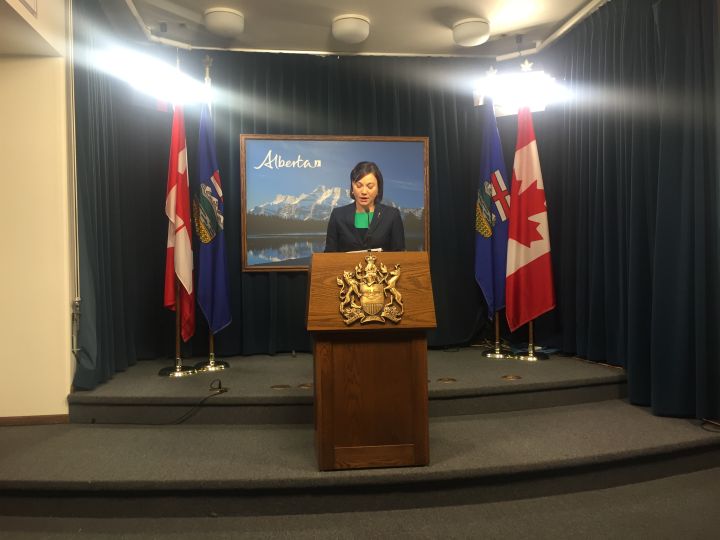EDMONTON – Prominent Canadian scientists are warning Alberta’s environment minister that the move to shut down the Alberta Environmental Monitoring and Evaluating Agency (AEMERA) was a “naive” mistake.

“Minister (Shannon) Phillips believes that there is public trust in government science,” says a letter signed by 10 A-list researchers.
“It is our experience in dealing with the public that this is not the case.”
Signatories include scientists whose work originally exposed how poorly Alberta was tracking the environmental impacts of industry, especially the oilsands, as well as some who examined those monitoring methods. They include ecologist David Schindler of the University of Alberta, biologist John Smol from Queen’s and geologist Andrew Miall of the University of Toronto.
READ MORE: Alberta NDP government revamps oilsands watchdog
On Tuesday, Phillips announced that the agency would be folded up and its work brought back within government. Citing a consultant’s report, Phillips said the agency was overspending, split by bureaucratic infighting and dividing Alberta’s scarce scientific resources.
“We were shocked,” the former chair of AEMERA, Lorne Taylor, said.
Taylor said the lack of contact with the minster slowed important hiring processes. Since spring 2015, when a former Environment Canada scientist was hired as the VP of Science, AEMERA had “accomplished a tremendous amount of work,” according to Taylor.
“From then on, the relationships have improved and there is a very positive working relationship now between the federal government and AEMERA,” Taylor continued.
The letter sent to Phillips Thursday also defends the agency’s record in getting monitoring programs running.
“Considering the many organizational difficulties and inter-departmental squabbles it has faced, AEMERA’s scientific performance in the nine months since it actually received the resources to do its work has been excellent.”
READ MORE: Alberta Liberal leader says NDP may be planning makeover for oilsands watchdog
Both Taylor and the letter from scientists say the consultant’s report was full of errors. For one, they say salaries at the agency were not inflated.
“A simple check with three scientists at AEMERA shows that they are paid the same or less than other civil servants of equivalent rank,” the letter stated.
A recent peer review of the oilsands component of the agency’s work gave it a solid “B” grade for dramatic improvements in research on how oilsands development affects the environment.
“With this pool of available talent, one must ask why an economist unfamiliar with the science of monitoring was asked to perform the critical review,” said Dr. David Schindler, one of the letters authors, noting the report was not peer reviewed.
“The minister is naive,” he said.
“She will not be the only minister in charge of this monitoring program, and this is a program that has to have many decades of integrity to be valuable. When the next minister — or another party that may think the environment is a complete throwaway if there’s money to be made — takes hold of this program, then it’s the same old problem.”
“You have a situation now where you have a government department that would control what is monitored and how it is monitored,” echoed Taylor, adding that “how information will be released” could lead to the politicizing of scientific data.
Phillips said environmental monitoring is a core function of government not unlike public health or safety. Taylor points to a core shift in ideologies from the NDP government for the organization being shut down.
“The minister wanted a pre-determined outcome when she hired Paul Booth,” the author of the report that called called AEMERA a “three-year failed experiment,” according to Taylor.
“There was certainly a change of attitude in that they wanted inside government to do that work,” Taylor said.
Alberta Environment was considering the letter and not immediately available for comment.
Alberta, in conjunction with Environment Canada, began revamping how the province tracked environmental change in the oilsands in 2012 in response to widespread criticism. That joint monitoring program became part of the new agency when it was created in 2013.
With files from Margeaux Morin, Global News
- B.C. introduces legislation recognizing Haida Gwaii Indigenous title
- Whale experts confident B.C. orca calf will survive, find family if rescue plan succeeds
- Chemical plant shuts down after high benzene levels detected near Ontario First Nation
- Ontario takes action against chemical plant after Aamjiwnaang First Nation residents fell ill



Comments